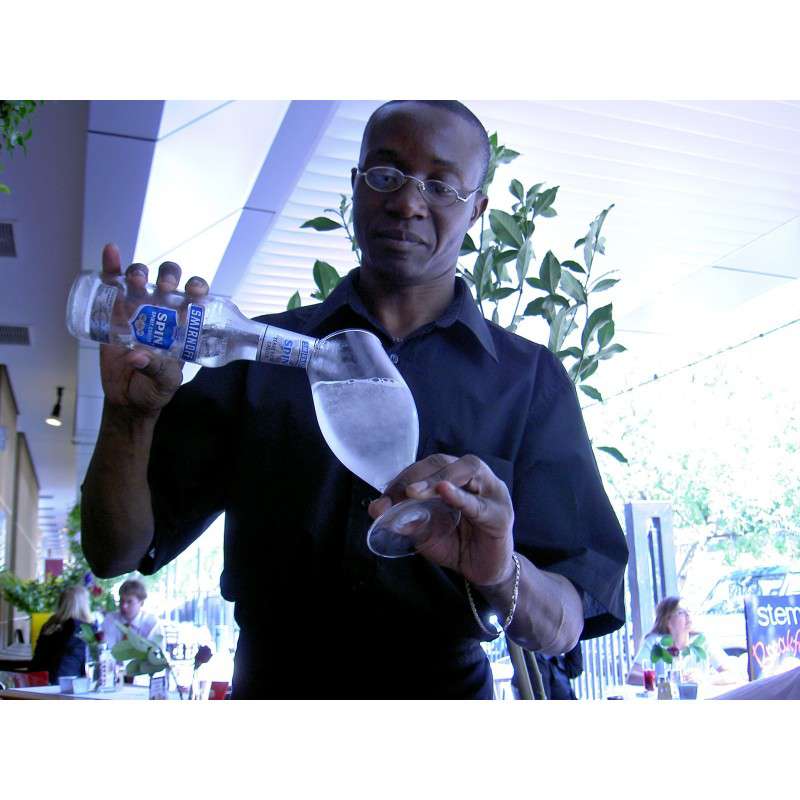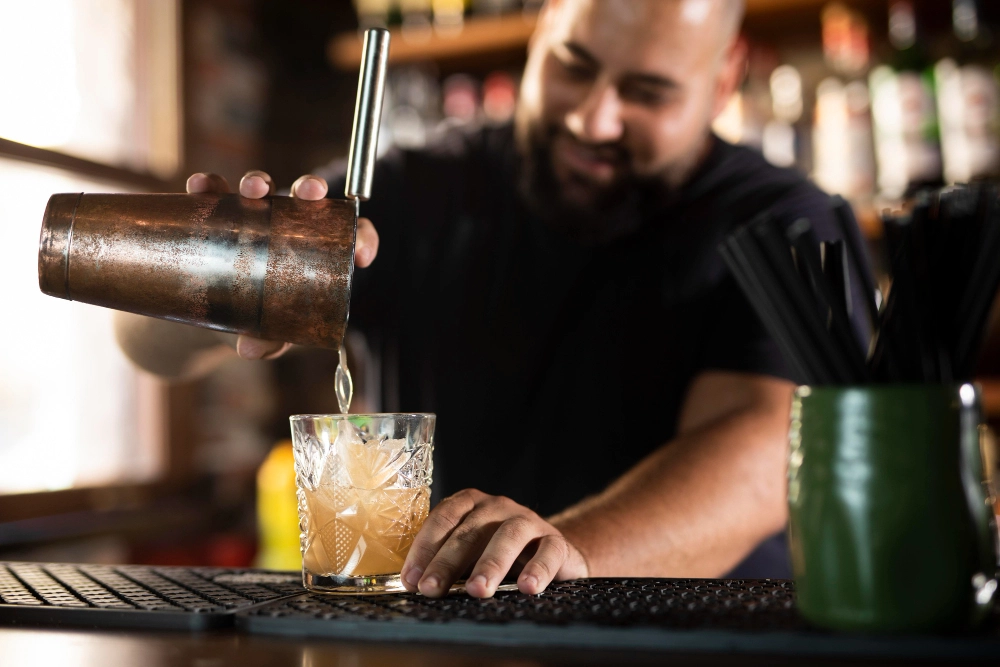Take Your Career to the Next Level with safe serve certification michigan
Take Your Career to the Next Level with safe serve certification michigan
Blog Article
Master Accountable Alcohol Solution With Comprehensive Accreditation Programs
The proficiency of responsible alcohol service is not simply a regulative requirement; it is a basic aspect that enhances the track record and operational integrity of establishments within the hospitality market. Comprehensive accreditation programs provide indispensable insights into neighborhood legislations, effective intervention techniques, and customer engagement strategies. By investing in these training campaigns, businesses can promote a culture of duty among their personnel, mitigating risks and boosting customer fulfillment. The path to reliable execution and its lasting advantages may not be as straightforward as it appears. What challenges lie ahead for those who seek to elevate their solution standards?

Relevance of Responsible Alcohol Solution
Responsible alcohol service is vital to promoting public wellness and safety in establishments that serve alcoholic beverages. It encompasses a variety of techniques made to prevent the overconsumption of alcohol, reduce the risk of alcohol-related injury, and make sure a risk-free atmosphere for patrons and personnel alike. By upholding liable service requirements, establishments can mitigate potential cases of intoxication, which may cause accidents, physical violence, or other adverse outcomes.
Furthermore, liable alcohol service boosts the overall customer experience. Furthermore, establishments that adhere to liable solution practices commonly experience lower insurance costs and lowered lawful responsibilities.
Additionally, implementing liable alcohol service methods straightens with wider public wellness efforts intended at minimizing drug abuse and advertising neighborhood wellness. This proactive technique not just shields private patrons but also contributes to a much healthier society. Eventually, liable alcohol solution is not just a legal commitment; it stands for an honest commitment to the wellness of clients and the neighborhood at large.
Key Elements of Qualification Programs
Qualification programs for accountable alcohol solution typically include numerous crucial elements developed to outfit team with the necessary skills and knowledge to offer alcohol safely. Most importantly, these programs often include comprehensive training on neighborhood and state alcohol laws, ensuring that participants understand their lawful responsibilities and the effects of falling short to comply.
One more critical element is the identification of indicators of intoxication - servsafe food handlers card. Personnel are educated to identify behavior cues showing when a client might be over-served, allowing them to interfere suitably
Additionally, reliable communication approaches are emphasized, showing personnel just how to engage with clients in a manner that advertises accountable drinking. This consists of training in dispute resolution methods, allowing staff to handle challenging circumstances comfortably and professionally.
In addition, programs regularly include sensible circumstances and role-playing workouts, giving participants with real-life instances to exercise their skills. Recurring education and learning and sources are essential for maintaining knowledge and abilities over time, as policies and best practices develop. Together, these elements produce an extensive framework that equips team to foster a safer drinking environment while lessening responsibility for establishments.
Advantages for Staff and Establishments
Staff and facilities alike gain substantial gain from taking part in liable alcohol solution certification programs. For staff, these programs enhance knowledge and skills connected to alcohol solution, outfitting them to recognize signs of intoxication and implement reliable intervention techniques. This training not just cultivates a sense of self-confidence amongst employees however also you can look here promotes a culture of safety and security and responsibility in the office.
For facilities, purchasing accreditation programs can lead to lowered obligation and less cases associated with over-serving. By guaranteeing that staff are well-trained in accountable service techniques, facilities can reduce risks related to alcohol-related incidents, thereby protecting their track record and economic security. Several territories provide rewards, such as lower insurance policy costs, for accredited establishments.
Furthermore, applying qualified techniques can boost client complete satisfaction and loyalty. Clients are more probable to go back to locations that prioritize their security and health. Eventually, a dedication to accountable alcohol solution not just grows a favorable setting however additionally improves the general functional effectiveness of facilities, making it a smart investment for lasting success in the hospitality industry.
Common Challenges in Alcohol Solution
Ensuring reliable alcohol service is not without its obstacles, also in facilities devoted to responsible techniques. One significant difficulty is the need for personnel to properly examine clients' alcohol usage levels. servsafe food handlers card. This requires a keen understanding of exactly how numerous variables, such as food intake, tolerance, and specific differences, affect drunkenness
Furthermore, the pressure to make best use of sales can conflict with liable solution procedures. Staff members might encounter problems in rejecting service to drunk people, specifically in social atmospheres where peer stress and safeserve expectations prevail.
One more challenge is remaining upgraded with neighborhood regulations and laws pertaining to alcohol solution. Compliance is crucial, yet frequent modifications in legislation can develop complication and might cause unintentional infractions.
Educating programs might not always cover the nuances of real-world situations, leaving staff ill-equipped to handle complicated scenarios. Inconsistent communication in between management and workers regarding expectations for liable service can even more intensify these concerns.
To navigate these obstacles efficiently, establishments must promote a setting of assistance, stressing the importance of liable service while offering the required devices and training for staff to be successful.
Actions to Obtain Accreditation
To obtain Liable Alcohol Service Qualification, applicants normally start by investigating the certain requirements mandated by their neighborhood governing authorities. These needs may differ substantially depending upon the area, so it is necessary to acquaint oneself with the pertinent legislations and policies.

After choosing a program, applicants should complete the requisite training, which typically covers subjects such as identifying intoxication, comprehending lawful obligations, and executing methods for liable solution. Participants should proactively involve with the product, as this expertise is vital for effective alcohol service.

Adhering to training, candidates commonly take an assessment to evaluate their understanding of the material. Successful conclusion of this analysis causes qualification.
Verdict
To conclude, understanding liable alcohol service with extensive accreditation programs is crucial for promoting security and boosting client experiences within the friendliness industry. By gearing up team with the needed expertise and abilities, facilities important source not just alleviate threats connected with overconsumption and legal liabilities however also grow a society of obligation. This commitment to liable service ultimately results in raised consumer loyalty and operational success, enhancing the relevance of ongoing training and adherence to alcohol service requirements.
Report this page